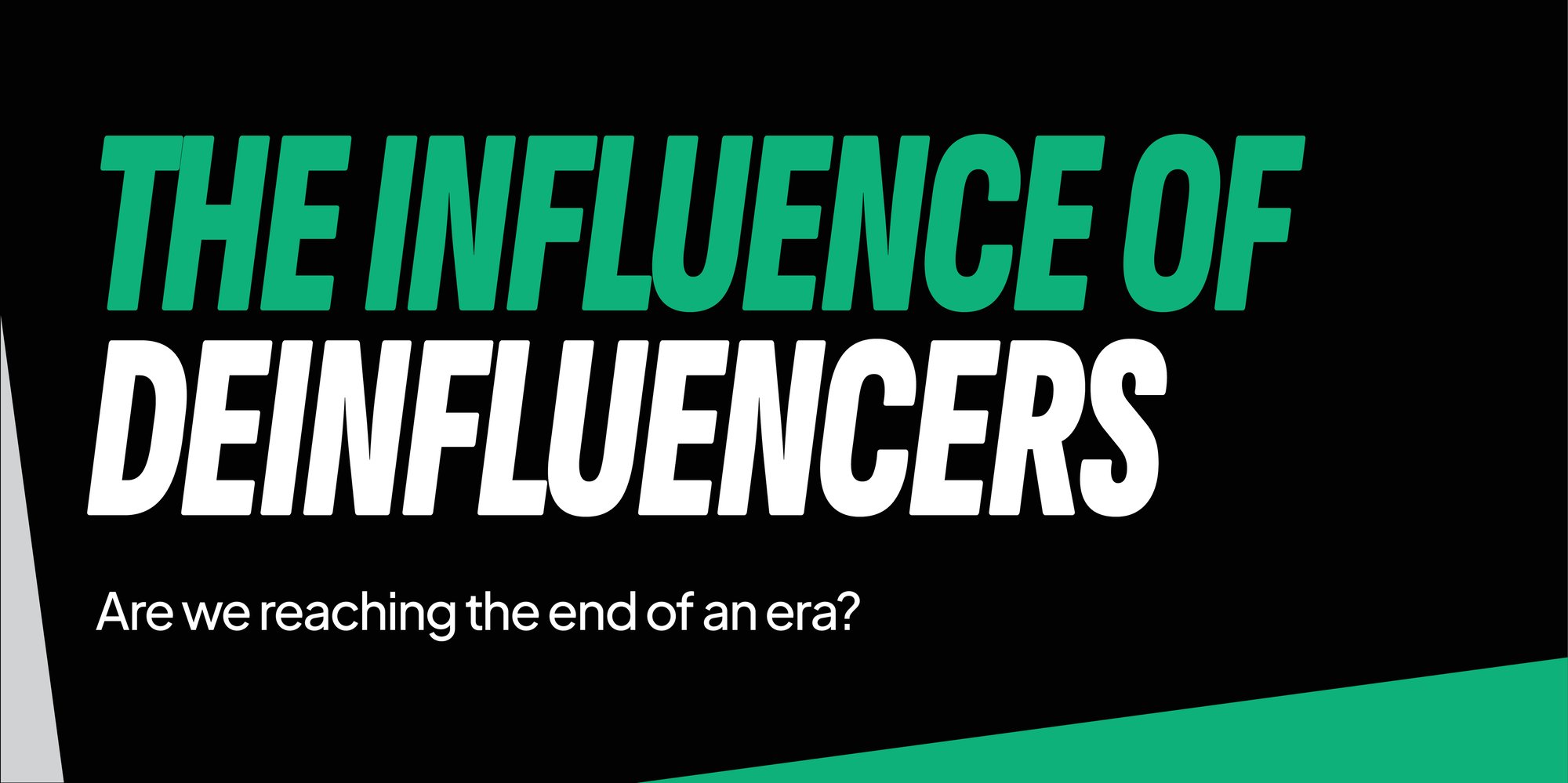The influence of deinfluencers: are we reaching the end of an era?

What is deinfluencing?
So, you’ve heard of influencers – those widely followed people on Instagram or TikTok, trying products sent to them for free, giving reviews, or advertising products as part of brand partnerships. But have you heard of deinfluencing?
Deinfluencing is sort of the opposite of influencing. It’s similar, in that it consists of influencers trying to persuade their followers, but different in that deinfluencing tries to encourage followers not to buy things. Essentially, deinfluencing hinges on ending “vapid consumerism” by discouraging overconsumption. But there’s more to it than that…
Cancel culture
What deinfluencing comes down to is honesty – not just a virtue, but an effective marketing tool! Part of the reason that certain influencers have so much sway with their followers is that they don’t promote products and services they don’t genuinely believe to be worthwhile.
This trend has, in part, to do with the rise of cancel culture – something influencers, known for being chronically online with their thoughts and behaviours, are uniquely vulnerable to. While the term cancel culture itself is hotly debated – is it a real thing or is it a scaremongering technique? – it’s certainly true that online accountability is more prevalent than ever before.
As a result, influencers are becoming more selective over the brands they align themselves with and ‘deinfluencing’ is on the rise.
Influencer marketing: the rise and fall of a brand
Morphe, a Los Angeles makeup brand, was once valued at $2 billion, largely credited to collaborations with high-profile influencers like Jeffree Star and James Charles. For years, the brand's success was propelled by partnerships with YouTubers such as Jaclyn Hill.
So what happened? The tide turned in 2020 when Jeffree Star faced accusations of using racist language and, the following year, James Charles was embroiled in sexual misconduct allegations. These controversies had a tangible impact on Morphe's financial health, with its profits in 2021 tumbling by approximately 20%. The decline was particularly tied to revenues linked to Charles and Star - who not only endorsed products but also featured in their own dedicated store sections - plummeting by 66%.
All this meant that, in early 2023, the brand announced it was closing all of its US-based stores. Ultimately, Morphe’s experience with influencer marketing demonstrates quite clearly its power to both make or break a business.
Is influencer marketing over?
In short - no. In fact, deinfluencing could be considered another arm of influencing, and perhaps an more powerful one at that. Because, while digital marketing influencers may discourage the overconsumption of products and services that they feel aren’t worth the price, their selectivity over which brands they do promote speaks much louder as a result.
Deinfluencing argues that it’s not about how much consumers have. Instead, it encourages selectivity to ensure high-quality purchases from brands that are known for being good to both people and the planet.
It could be said that deinfluencing is actually the process of the public influencing brands back. Consumers have shown where their loyalties lie – when Matter’s 2020 Influencer Survey asked what the most important attribute was when learning about a company, product, or brand, consumers’ top choice was authenticity (39%). Digital marketing influencers are simply responding to this preference by leaning into deinfluencing, and brands who understand this are best placed to profit from the trend.
Which brands might benefit from deinfluencing?
Brands interested in leveraging this trend need to fully grasp the concept of influencer authenticity, because authenticity lies at the heart of deinfluencing.
Having a history of successful influencer collaborations does not guarantee a brand will do well through deinfluencing. To harness the power of this trend, a brand must embody values that influencers can support ethically, socially, and authentically.
This means that if your product or service outshines competitors in your field, if you offer outstanding customer service, if your business champions diversity, or if you genuinely invest in what you claim to stand for, deinfluencing could be advantageous for you.
That said, benefiting from deinfluencing is not as straightforward as traditional influencer marketing. Deinfluencing involves strategically choosing certain products to critique or downplay, thereby building trust with followers. This trust, in turn, lays the groundwork for the promotion of other products in the future. Success in this area demands a long-term strategy and the courage to openly discuss why your offerings surpass those of your rivals - if your brand is bold enough to stir the pot, deinfluencing could be the right strategy for you.
Ready to make some waves?
To find out more about using influencer marketing or how your business might make the most of deinfluencing to grow your business, drop us a message – we’d love to get involved.





